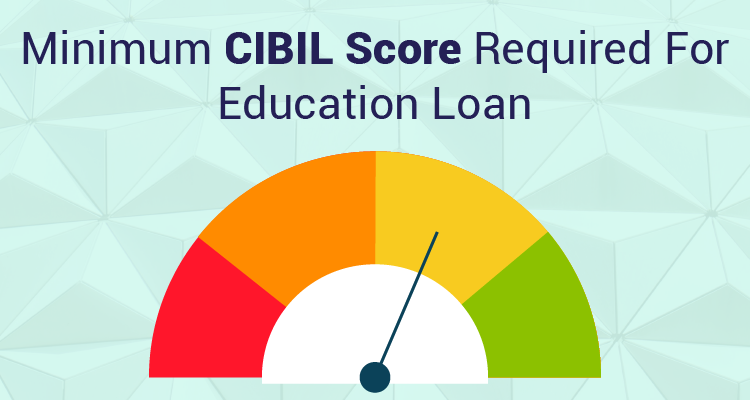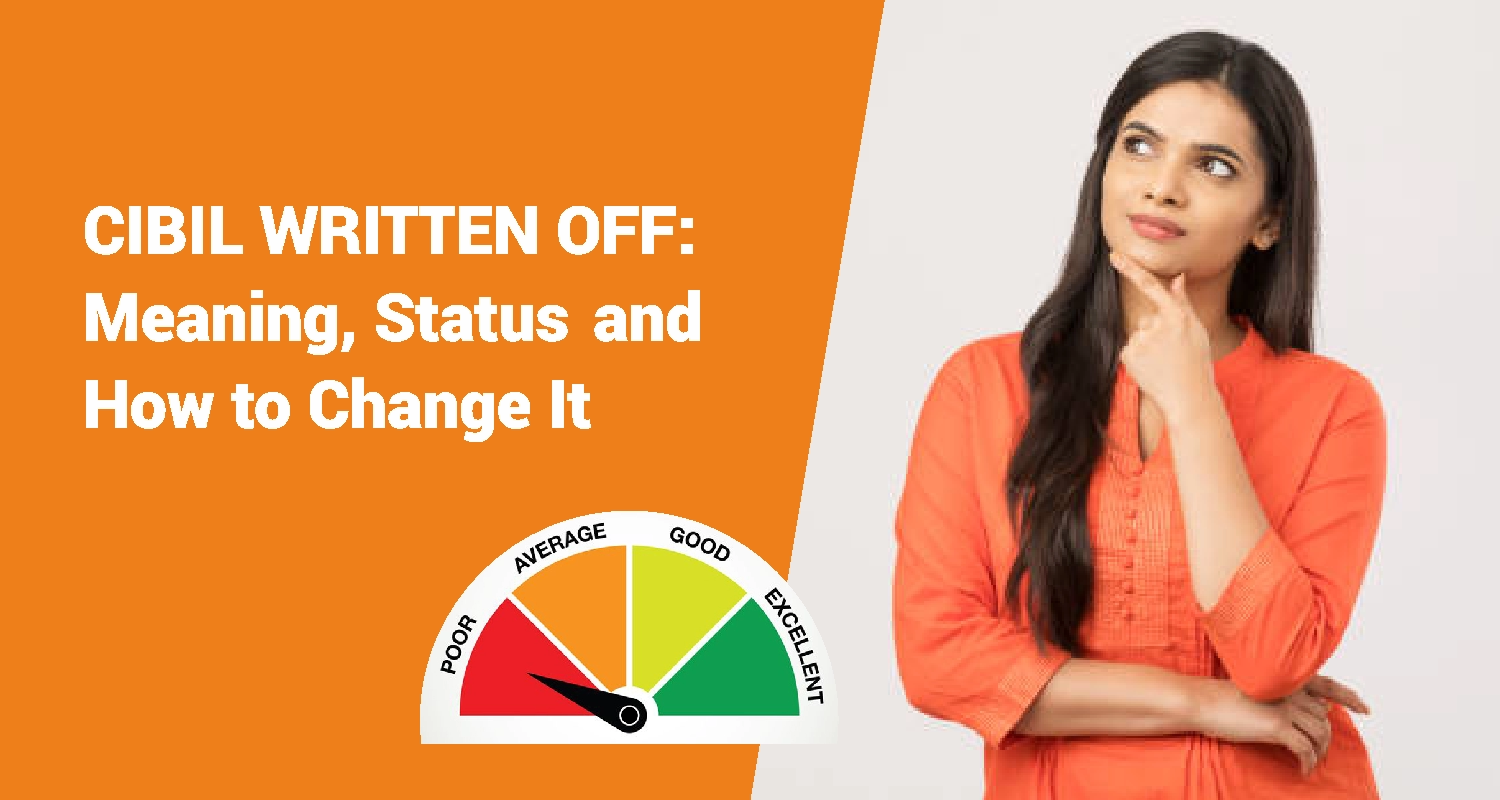Minimum Cibil Score Required For Education Loan

Education is a necessity in today’s world. Quality education, however, is usually expensive, as seats in government-sponsored institutions of higher education are extremely limited compared to the number of aspiring students. Several private institutions have stepped into the education sector in recent years in India, offering graduate and postgraduate degrees and a host of professional certificate courses. In addition, there are several students who aspire to study abroad. The cost of this is prohibitively expensive for the average Indian.
Thus, students who want to improve their career prospects through further education may find themselves in a bind as they do not have access to sufficient funding. Fortunately, there are several banks and NBFCs who offer Educational Loans for students. These are loans offered to students who wish to pursue higher education in India or abroad and have secured admission for the same.
Your ability to access a student loan and the quantum of loan available to you will depend on several factors such as course fees, collateral offered, the third-party guarantor and your Credit Score. This article focuses on the CIBIL Score you need in order to secure a student loan from a recognised bank or NBFC.
A Credit Score is often referred to as a CIBIL score in India. This is a numerical value given to your credit worthiness and ranges between 300 to 900. A score of 700 and above is considered a good CIBIL score by most lenders, though some put this figure at 750.
Must Read: Credit Score Report used by Lenders in India
As you may be aware, you can avail a student loan from INR 7.5 lakhs to INR 1.5 crores, depending on the lender that you approach. Most lenders will also allow you to apply independently for a loan up to INR 400,000/-. For bigger loan amounts, they usually ask for a collateral or a third-party guarantor.
What is important to remember is that your likelihood of receiving a student loan is very dependent on your having a good CIBIL score. The higher your CIBIL score, the better are the repayment terms you can secure for your educational loan. If you are applying independently for a loan, most government banks will accept a credit score of 685 or sometimes even less. Private banks and NBFCs usually will expect a credit score of 700 to 750 and above. With a score of 750 and above, it will be extremely easy for you to secure a loan.
As a student without any income of your own, it may be that you do not have a credit score tagged against your name. In such a case, it is best to approach the lender with a co-borrower who has the requisite credit score. The lending institution will rely on the co-borrower’s credit score and other credentials to secure the loan.
In the event that you are refused a loan because of a low CIBIL score, here are some of the things you can do to improve your credit score and your chances of obtaining a loan.
Check The Reasons For Your Low Credit Rating:
It is possible that despite you paying your credit card and other dues on time, the score allotted to you is low. This is because there are several instances where your score is pulled down due to erroneous postings in your account by the credit rating agencies. In such cases, write to them with the relevant details asking the agency to rectify your rating.
Must Read: Credit Bureaus in India
If however, there is no error, it is best to improve your credit score before applying for an educational loan again. This is because each time you apply for a loan, there is a hard check by lending agencies. Multiple hard checks result in lowering of your score. It usually takes a year of credit-worthy actions, such as keeping your Credit Utilisation Ratio within 30%, paying bills on time etc. to rebuild your score to an acceptable level. These actions are explained more in detail below.
Keep Your Credit Utilisation Ratio Within 30%:
A Credit Utilisation Ratio is the ratio of your credit spending to that of your credit limit. Thus, if you have a credit card limit of INR 100,000/-, avoid spending more than INR 30,000/- per credit card cycle.
Pay Your Credit Dues On Time:
A person who does not pay his or her credit dues within the due date on a regular basis is considered a risky borrower. This drives their Credit Rating down. It is therefore important to keep a track of your due dates and pay your bills within the assigned due date.
While these actions will improve your credit score, it could take up to a year. If you are in a hurry for the loan, you could explore other options. These include putting up a collateral such as a house or insurance or approaching the lender for a loan along with a co-borrower or guarantor. In such cases, your credit score will be of secondary importance.
You could also consider trying for a personal loan in case there is an extreme urgency in securing the loan. While these come with higher costs and repayment terms, they also entail lesser paperwork and faster processing speeds. IIFL personal loan for higher studies is the right one for you.
Disclaimer: The information contained in this post is for general information purposes only. IIFL Finance Limited (including its associates and affiliates) ("the Company") assumes no liability or responsibility for any errors or omissions in the contents of this post and under no circumstances shall the Company be liable for any damage, loss, injury or disappointment etc. suffered by any reader. All information in this post is provided "as is", with no guarantee of completeness, accuracy, timeliness or of the results etc. obtained from the use of this information, and without warranty of any kind, express or implied, including, but not limited to warranties of performance, merchantability and fitness for a particular purpose. Given the changing nature of laws, rules and regulations, there may be delays, omissions or inaccuracies in the information contained in this post. The information on this post is provided with the understanding that the Company is not herein engaged in rendering legal, accounting, tax, or other professional advice and services. As such, it should not be used as a substitute for consultation with professional accounting, tax, legal or other competent advisers. This post may contain views and opinions which are those of the authors and do not necessarily reflect the official policy or position of any other agency or organization. This post may also contain links to external websites that are not provided or maintained by or in any way affiliated with the Company and the Company does not guarantee the accuracy, relevance, timeliness, or completeness of any information on these external websites. Any/ all (Gold/ Personal/ Business) loan product specifications and information that maybe stated in this post are subject to change from time to time, readers are advised to reach out to the Company for current specifications of the said (Gold/ Personal/ Business) loan.



